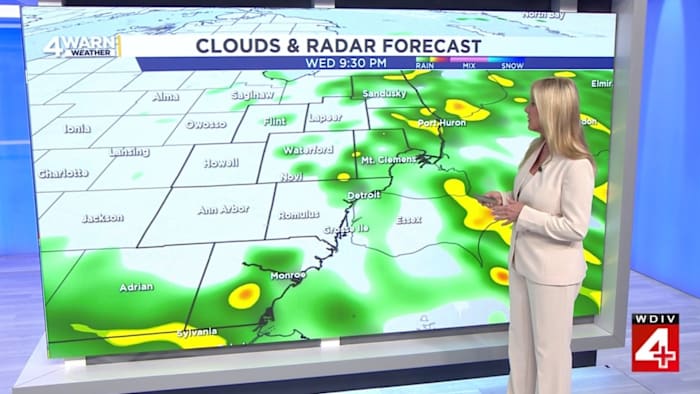Health
Coffee and COVID: Could drinking 1 or 2 cups a day reduce the severity of the viral illness?
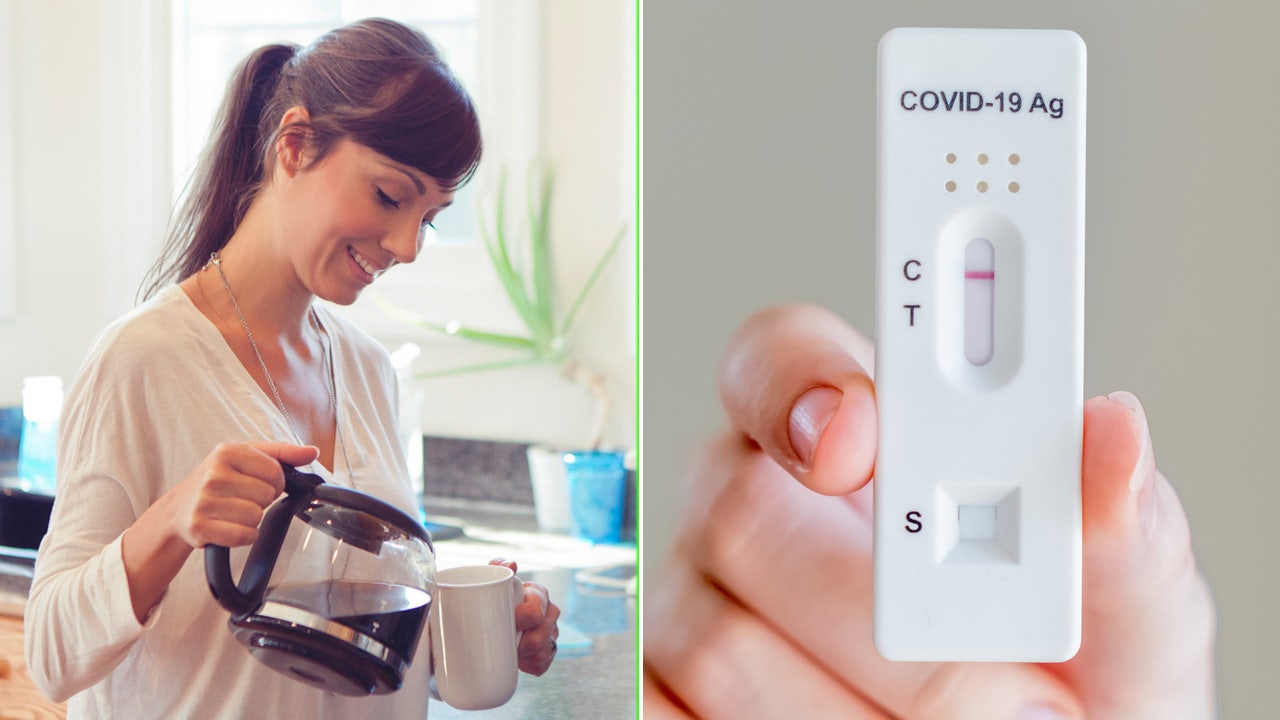
Your daily cup of coffee could potentially double as COVID protection, a new study from China Medical University is suggesting.
Previous research has shown that a diet rich in polyphenols — a class of compounds found in many plant foods that act as antioxidants — could boost the immune system and reduce the risk of severe disease.
Given that coffee contains many polyphenols, researchers looked into whether consuming the beverage could reduce the risk of severe COVID illness.
DRINKING AN EXTRA CUP OF COFFEE PER DAY COULD HELP WITH WEIGHT MANAGEMENT, STUDY FINDS
Evaluating a group of 64 adult participants, the researchers determined that consuming one to two cups of coffee per day helped to prevent infection by multiple COVID variants.
The results were published in the journal Cell and Bioscience on Nov. 16.
Drinking coffee could double as COVID protection, a new study from China Medical University has suggested. Two medical experts weighed in with thoughts and insights. (iStock)
Both ground coffee and instant coffee were found to have benefits, as was decaffeinated coffee.
The coffee prevented entry of the SARS-CoV-2 infection by keeping the virus from entering host cells.
SHOULD YOU GET THE COVID AND FLU VACCINES AT THE SAME TIME?
It did this by blocking the spike protein on SARS-COV-2 from binding to the enzyme ACE2, which is the primary receptor for the COVID-19 virus and is found in the lungs.
It also reduced the activity of proteins and enzymes that are associated with severe COVID illness.
“This study verified that moderate coffee consumption, including decaffeination, can provide a new guideline for the prevention of SARS-CoV-2,” the study authors wrote.
“Based on the results, we also suggest a coffee-drinking plan for people to prevent infection in the post-COVID-19 era.”
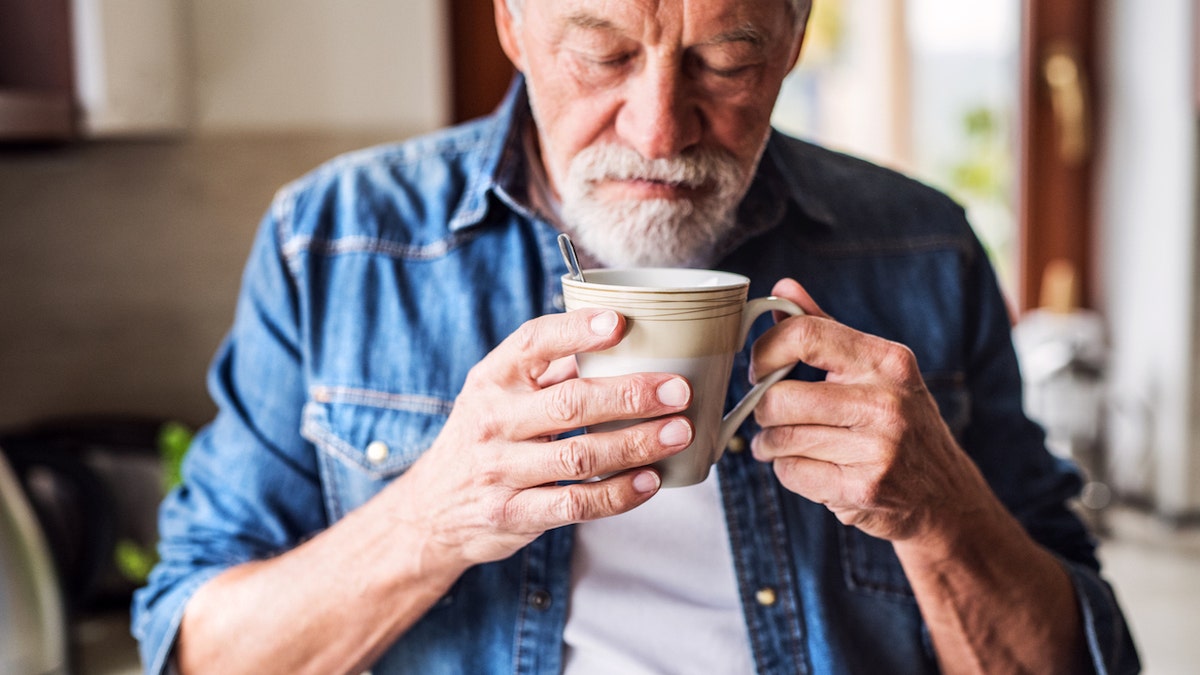
Previous research has shown that a diet rich in polyphenols — a class of compounds found in many plant foods that act as antioxidants — could boost the immune system and reduce the risk of severe disease. (iStock)
Dr. Marc Siegel, clinical professor of medicine at NYU Langone Medical Center and a Fox News medical contributor, was not involved in the study but offered his insights.
“Coffee contains many active ingredients that have been shown to be good for health — polyphenols and antioxidants,” he told Fox News Digital.
COVID AND FLU VACCINE RATES ARE DECLINING FOR US HEALTH CARE WORKERS, CDC REPORTS: ‘DISTURBING TREND’
A prior study from the UK Biobank showed a 10% decrease in infection rate among coffee drinkers with COVID, Siegel pointed out.
“The current study from Taiwan is well done, but it raises more questions than it answers,” he went on, noting that there was a “very small” group of human subjects.

More studies need to be done before people conclude that coffee is actually protective against COVID infection, one doctor said. (iStock)
“While the mechanism for uptake at the ACE2 cells appears very accurate, a pseudovirus is used, which has similar genetic material and antigen as the virus, but cannot be the exact same as the virus itself,” Siegel pointed out.
More studies need to be done before people conclude that coffee is actually protective against COVID infection, the doctor said.
“Also, coffee may increase stomach acidity, and there has been a connection drawn between COVID and increased stomach problems (GERD),” Siegel noted.
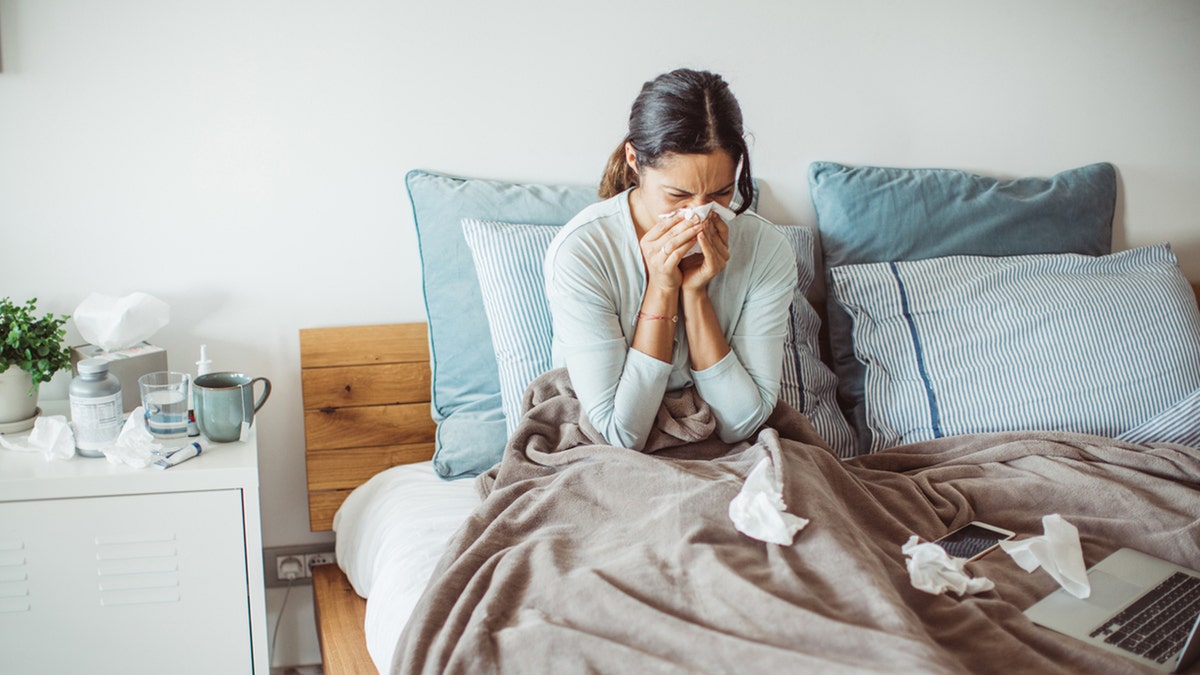
Given that coffee contains many polyphenols, researchers looked into whether consuming the beverage could reduce the risk of severe COVID illness. (iStock)
Early research during the pandemic has also suggested that decreased stomach acidity may lead to better outcomes with COVID, he added — “so this is a complex area.”
Dr. Renuga Vivekanandan, an infectious disease expert, physician and the director of Antimicrobial Stewardship and Hospital Epidemiology at CHI Health Creighton University Medical Center – Bergan Mercy in Omaha, Nebraska, also offered reaction to the study.
CLICK HERE TO SIGN UP FOR OUR HEALTH NEWSLETTER
She was not involved in the research.
“The study proposes some interesting concepts about how coffee can help prevent or reduce the risk of COVID-19 severity,” she told Fox News Digital.
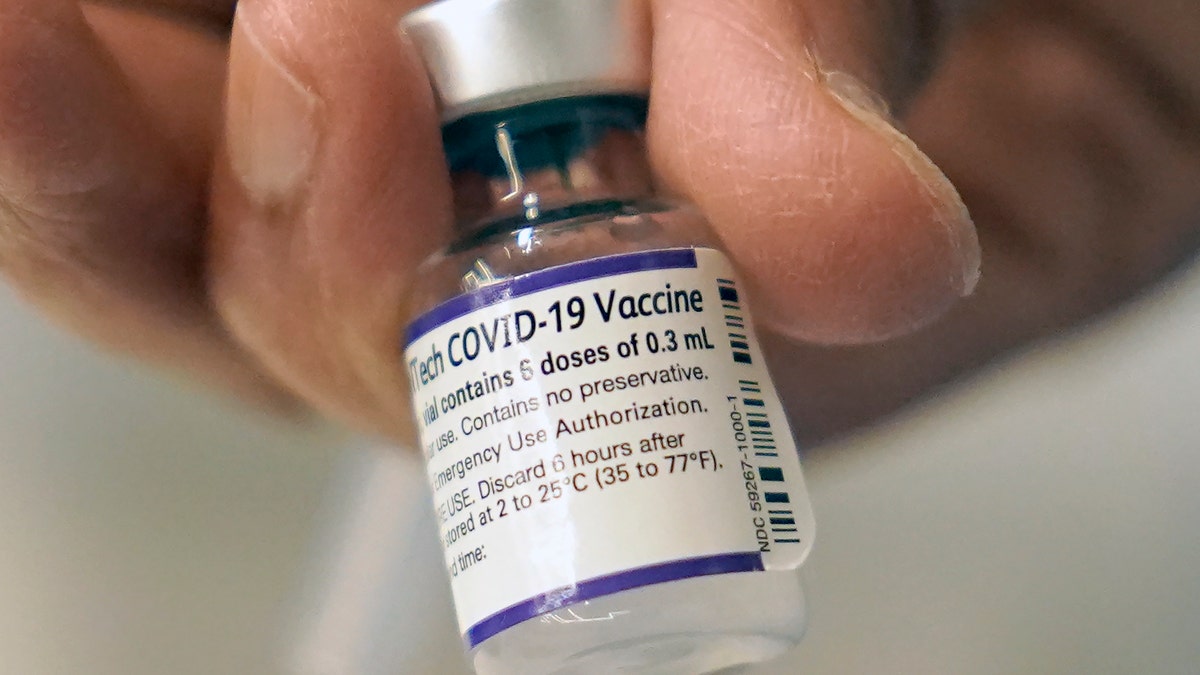
An infectious disease expert told Fox News Digital that the best way to prevent infection is vaccination. (AP Photo/Steven Senne)
Vivekanandan, however, echoed Siegel’s comments that the data needs to be replicated in a larger-scale study before a conclusion is drawn.
“What really works well to prevent COVID-19 infection is vaccination, which produces very effective antibodies to protect against acquiring or decreasing severe COVID-19 infection,” she said.
“If someone acquires infection, they can take Paxlovid or Remdesivir antiviral agents, which can work to decrease the infection severity,” she said.
“These are proven over many studies, and strong data support the notion that COVID-19 vaccines and the antivirals we currently have provide good protection against COVID-19 infection.”
Fox News Digital reached out to the study authors for comment.
For more Health articles, visit www.foxnews.com/health.

Health
How Much Weight Can You Safely Lose in a Month? Here’s What Doctors Say

Use left and right arrow keys to navigate between menu items.
Use escape to exit the menu.
Sign Up
Create a free account to access exclusive content, play games, solve puzzles, test your pop-culture knowledge and receive special offers.
Already have an account? Login
Health
Zone 2 training: The trending workout that burns fat without intense exercise
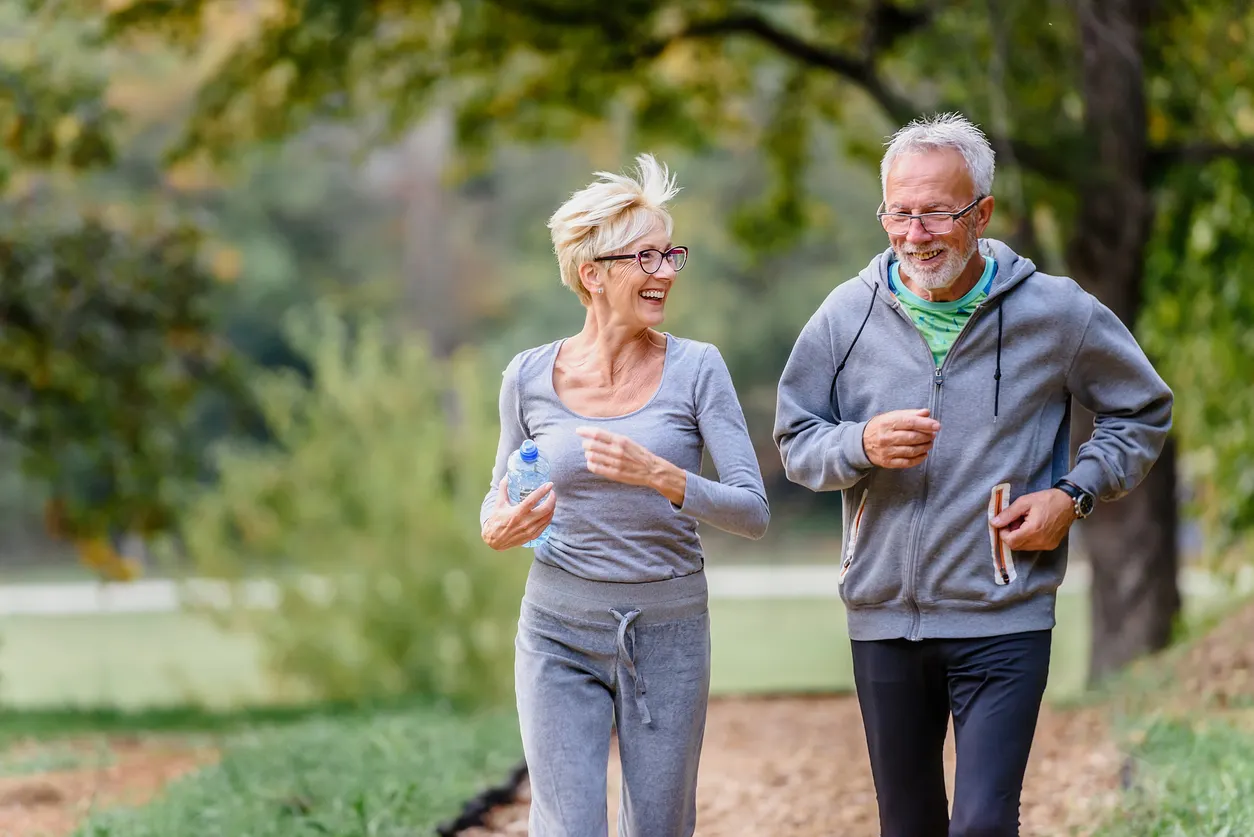
An exercise that takes a more mild approach while offering all the fat-burning benefits of a more grueling workout might sound too good to be true.
But some claim that the trending “Zone 2” training, commonly known as the “fat-burning zone,” offers just that.
What is this form of exercise — and can it work for anyone?
STUDY REVEALS EXERCISING EVERY DAY MAY NOT BE NECESSARY: ‘BETTER THAN NONE’
“Zone training is generally defined by someone’s proximity to their maximum heart rate,” Carmine Ciliento, a fitness manager at Crunch Fitness in New York, told Fox News Digital.
The zone-based training method measures how hard the body is working and how it’s using energy.
Zone training is based on the exerciser’s proximity to their maximum heart rate. (iStock)
Different zones burn different compounds in the body, according to Ciliento.
“Zone 2 is working out at about 60% to 70% of someone’s maximum heart rate,” he said.
STAY FIT IN YOUR 40S AND BEYOND WITH THESE SMART WORKOUT TIPS
The most common way to determine heart rate is to subtract a person’s age from 220. This means a 55-year-old would have an approximate maximum heart rate of 220 – 55 = 165 bpm.
Wearable heart rate monitors and sports watches can be used to track heart rate while working out, and many cardiovascular fitness machines also calculate it.
Benefits of Zone 2 training
When someone is working out, their heart rate zone indicates their level of exertion and what they’re utilizing for energy, according to exercise physiologist Chris Travers via Cleveland Clinic.
JILLIAN MICHAELS REVEALS SIMPLE WORKOUT TO EXTEND YOUR LIFESPAN ‘UP TO 7 YEARS’
The higher the heart rate gets, the more carbohydrates and protein the body burns for energy, and the less it relies on fat for fuel.
While exercising in Zone 2, roughly 65% of the calories burned are from fat, according to Cleveland Clinic.
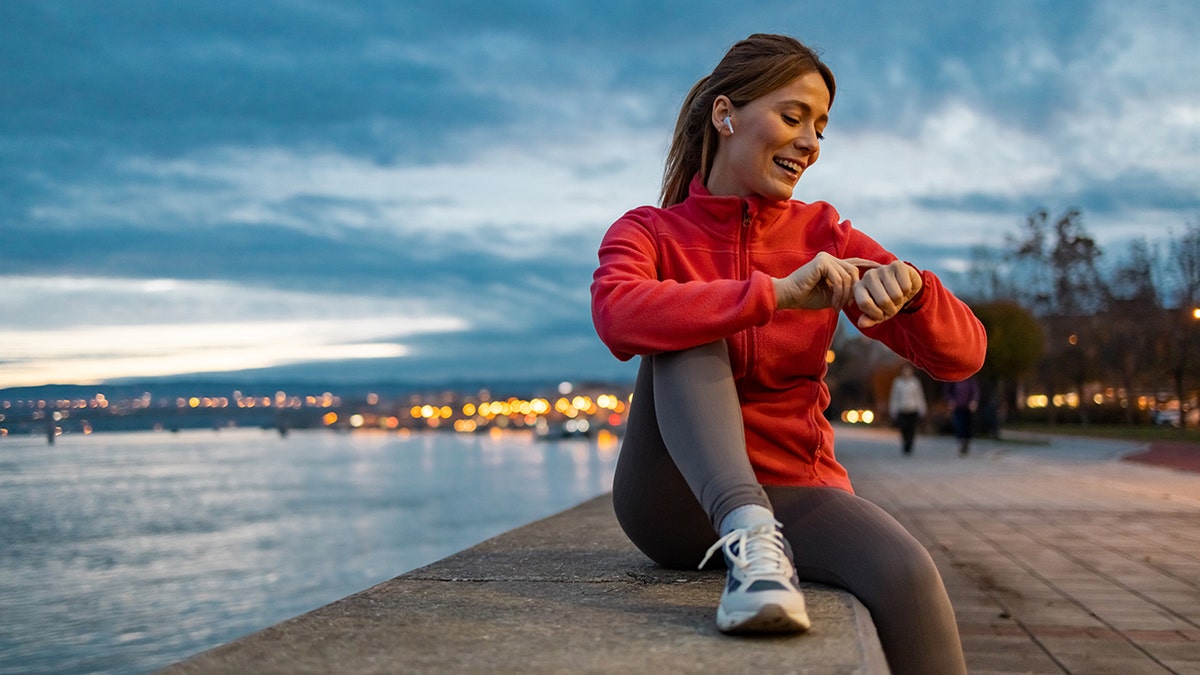
While exercising in Zone 2, roughly 65% of the calories burned come from fat. (iStock)
“Zone 2 is especially valuable because it allows you to add cardio volume to your training without overstressing your body,” Ciliento told Fox News Digital.
“For people just starting out, anything above Zone 2 may be too intense, so a lot of their work will most likely need to begin in this zone.”
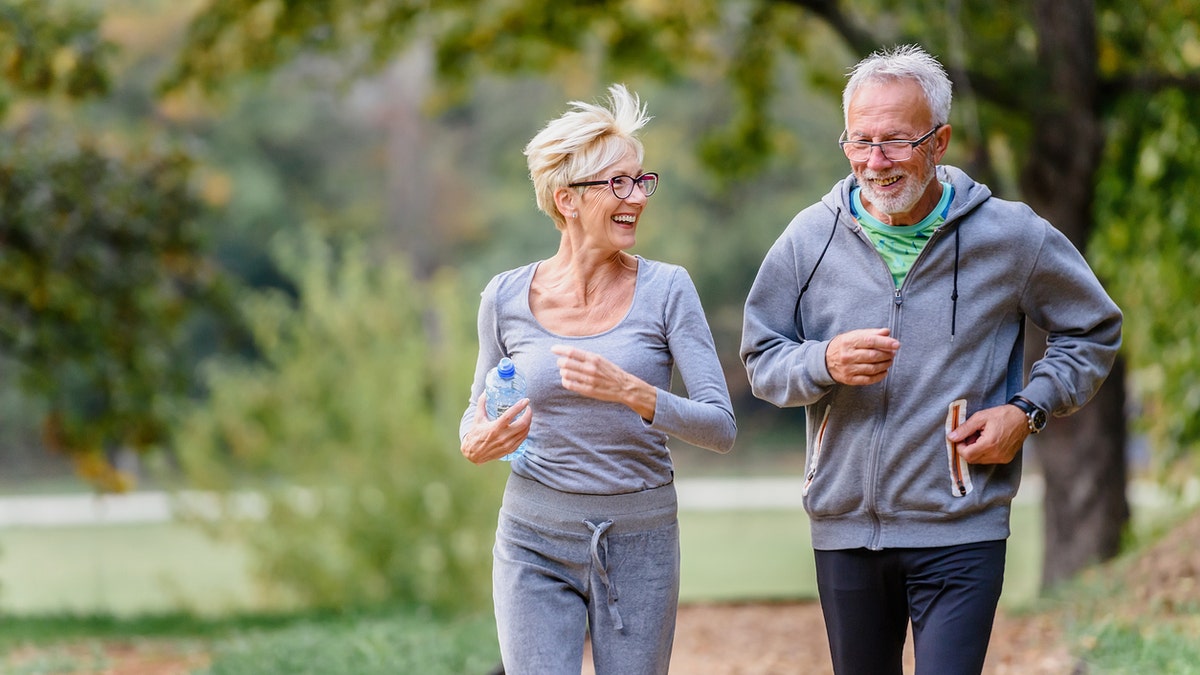
“Zone 2 is especially valuable because it allows you to add cardio volume to your training without overstressing your body,” an expert said. (iStock)
Athletes and those who are already into fitness may not reap as many benefits from Zone 2 as those who are just starting out.
Ciliento, who is an endurance athlete, said he sees Zone 2 as a great tool for recovery efforts.
Getting to Zone 2
Cleveland Clinic defines Zones 1, 2 and 3 as moderate-intensity aerobic activity.
In Zone 2, you should be able to hold a “light conversation,” but may need to take a break from talking to take a breath now and then, according to Cleveland Clinic.
CLICK HERE TO SIGN UP FOR OUR HEALTH NEWSLETTER
This is sometimes referred to as the “talk test.”
When in Zone 2, Travers told Cleveland Clinic, “You’re in a moderately easy zone. Not everyone should stress about the numbers, especially if that becomes a barrier to enjoying exercise.”
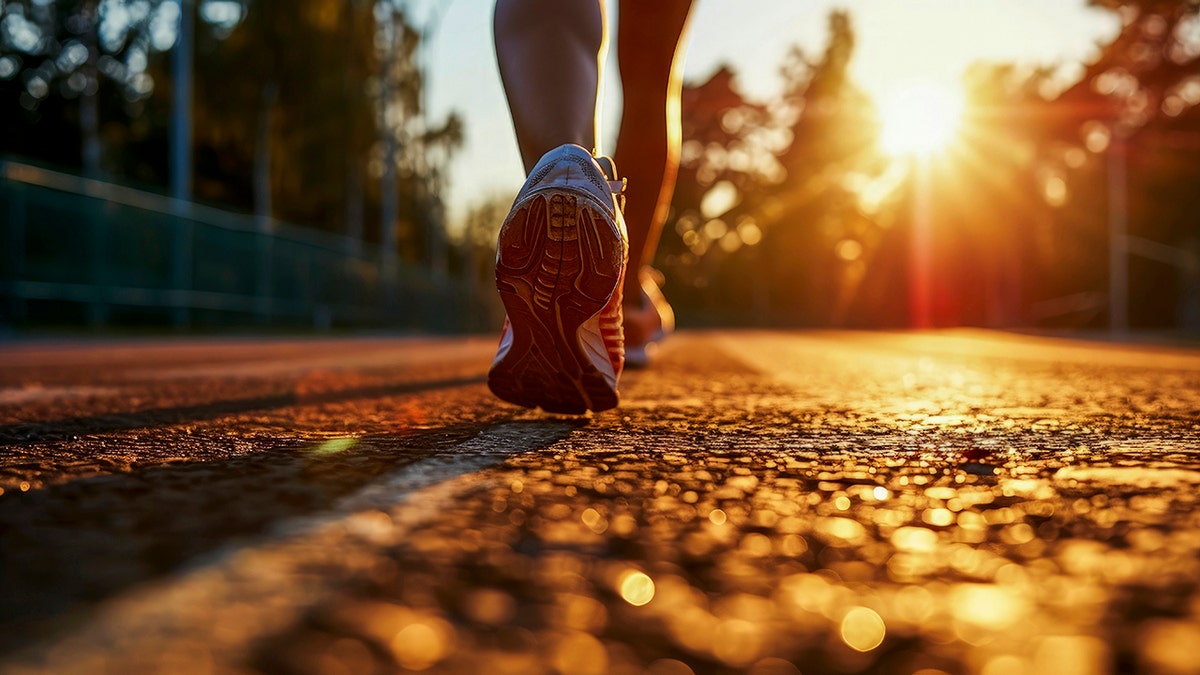
In Zone 2, you should be able to hold a “light conversation,” but may need to take a break from talking to take a breath now and then, according to Cleveland Clinic. (iStock)
For most people, a brisk walk will get them into Zone 2, Ciliento noted.
For more Health articles, visit www.foxnews.com/health
Other moderate-intensity aerobic exercises include biking, swimming or even mowing the lawn, according to Mayo Clinic.
Health
See the Weight Loss Apps That Helped One Woman Lose 118 Pounds

Use left and right arrow keys to navigate between menu items.
Use escape to exit the menu.
Sign Up
Create a free account to access exclusive content, play games, solve puzzles, test your pop-culture knowledge and receive special offers.
Already have an account? Login
-
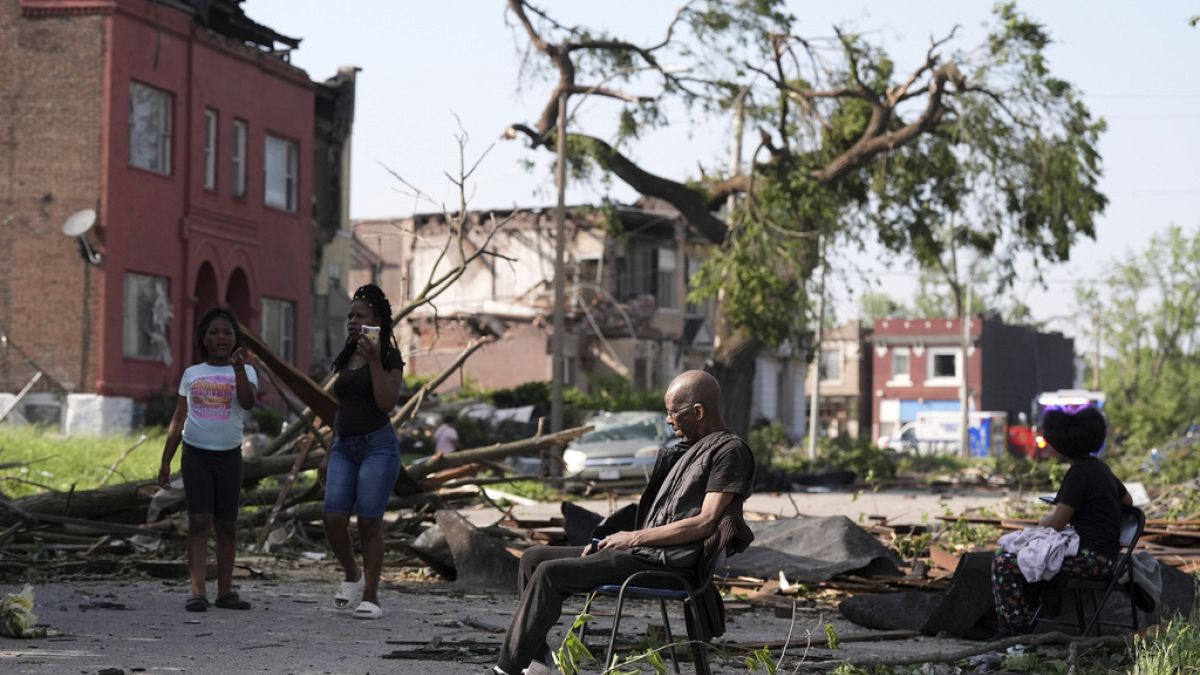
 World1 week ago
World1 week agoSevere storms kill at least 21 across US Midwest and South
-

 News1 week ago
News1 week agoMaps: 3.8-Magnitude Earthquake Strikes Southern California
-

 News1 week ago
News1 week agoWatch: Chaos as Mexican Navy ship collides with Brooklyn Bridge, sailors seen dangling – Times of India
-

 Politics1 week ago
Politics1 week agoTexas AG Ken Paxton sued over new rule to rein in 'rogue' DAs by allowing him access to their case records
-

 World1 week ago
World1 week agoPortuguese PM’s party set to win general election, fall short of majority
-

 Politics1 week ago
Politics1 week agoAfghan Christian pastor pleads with Trump, warns of Taliban revenge after admin revokes refugee protections
-
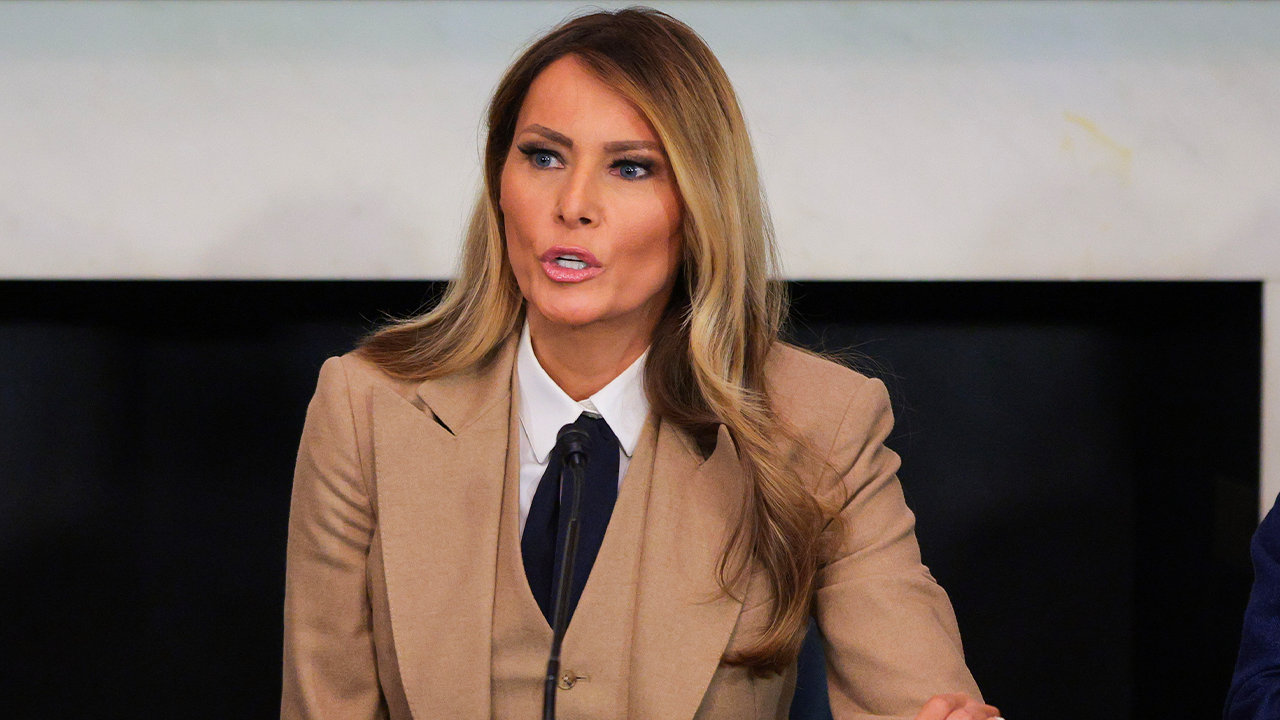
 Politics1 week ago
Politics1 week agoTrump, alongside first lady, to sign bill criminalizing revenge porn and AI deepfakes
-

 News1 week ago
News1 week agoVideo: One Person Dead in Explosion Outside Palm Springs Fertility Clinic
